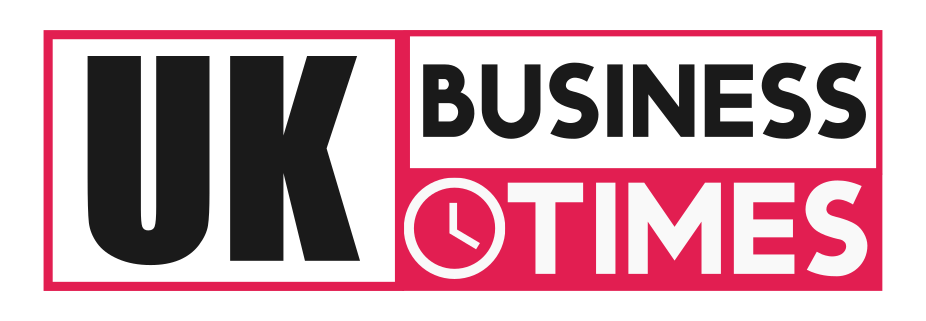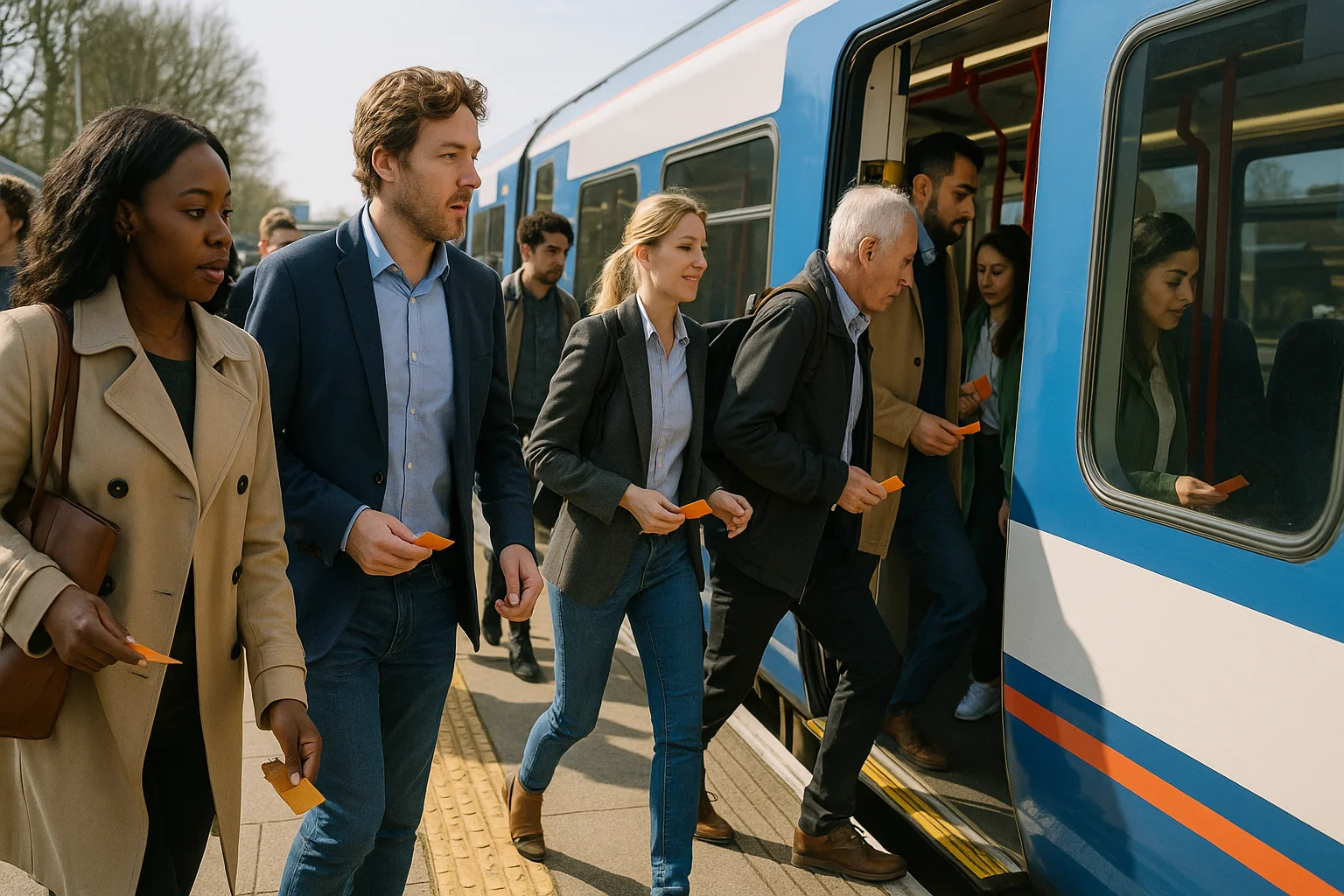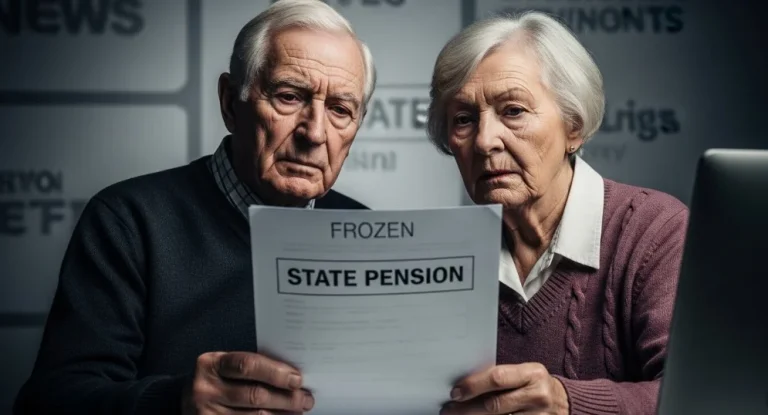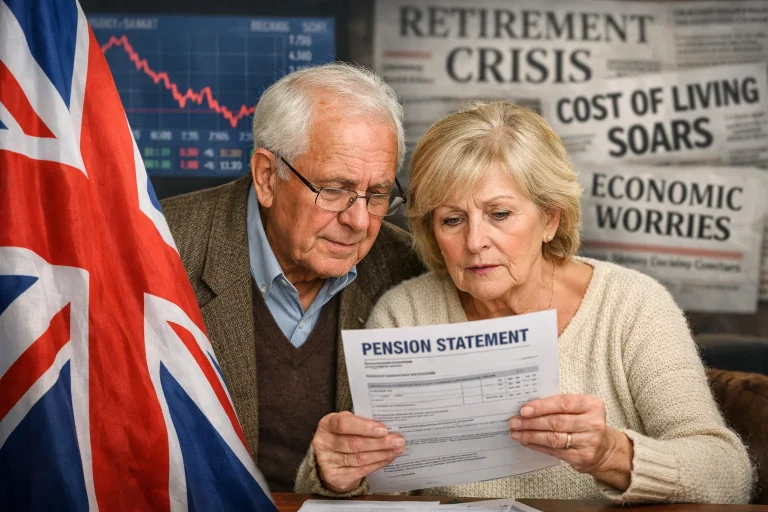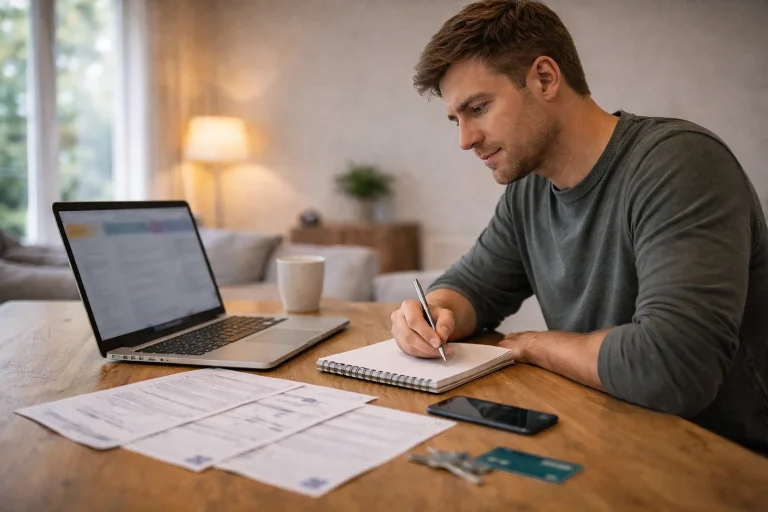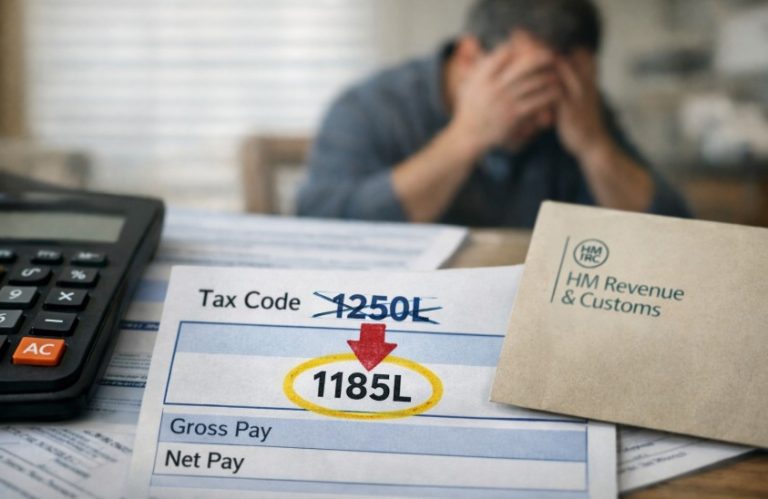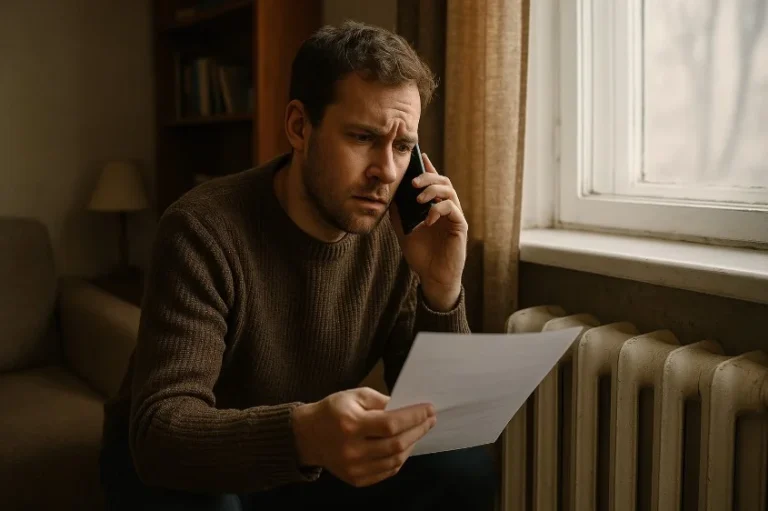If you’ve ever looked at your UK train ticket and wondered, “Am I paying VAT on this?”, you’re not alone. It’s a common question, especially among commuters, business travellers, and finance-conscious passengers trying to understand how much of their travel costs can be claimed back.
The topic can seem complicated at first glance, but it’s actually straightforward once broken down clearly. Most train tickets in the UK are classified as zero-rated for VAT, meaning VAT technically applies but is charged at 0 percent.
However, there are exceptions to be aware of, including extras and third-party services that may carry a 20 percent VAT. This guide answers all your questions in plain English, helping you avoid confusion when booking tickets or filing VAT returns.
What Does “Zero-Rated for VAT” Mean for Train Tickets?
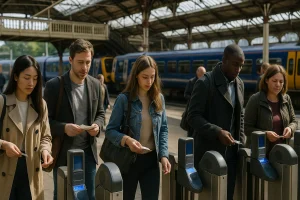
Understanding what “zero-rated” means is crucial to grasp how VAT works on train travel in the UK. A zero-rated product or service is technically VAT-applicable, but the VAT rate charged is 0 percent.
This is not the same as VAT-exempt, where VAT doesn’t apply at all. For train tickets, this zero-rating status is beneficial both for passengers and train operators.
When you buy a standard train ticket, you’re not charged any VAT directly. However, because the service is still considered taxable, the train operator can reclaim VAT on their own related business costs, such as train maintenance, fuel, and station services. This system helps keep ticket prices lower than they otherwise might be.
This distinction matters especially for businesses. A VAT-exempt ticket offers no reclaim opportunities on costs, whereas a zero-rated one allows VAT recovery further up the supply chain.
It’s a detail that adds efficiency to the tax structure while also benefiting travellers with more affordable fares. In short, zero-rated status helps maintain balance in both travel pricing and tax handling.
Which Train Tickets Are Zero-Rated in the UK?
The UK tax system classifies several types of train tickets as zero-rated for VAT. This classification allows passengers to travel without paying any additional VAT on their fares while still ensuring operators benefit from reclaiming input VAT.
Here’s what typically qualifies:
- Standard-Class Tickets: Whether bought for same-day travel or in advance, these are zero-rated.
- Advance Tickets: Purchased early for a specific journey, these also fall under the zero-rated category.
- Season Tickets: Covering regular travel over a period, including weekly, monthly, and annual passes, these are zero-rated.
- Most First-Class Tickets: Despite the premium experience, many first-class tickets are zero-rated, though some conditions apply.
- Return Tickets: Both single and return journeys for domestic travel are usually VAT-free under this classification.
Whether you’re booking online or at a station, the price you see is the final price, with no VAT added. It’s worth checking the ticket terms if you’re buying bundled services, as these could change the VAT status.
The zero-rated rule only applies when you’re purchasing the train journey on its own, not combined with extra services. This clarity helps both individuals and businesses plan their travel budgets accurately.
When Does VAT Apply to Train Travel?
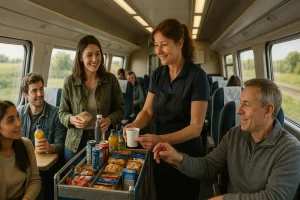
Although train fares are mostly VAT-free in the UK, there are certain services and situations where VAT is charged at the standard 20 percent rate. These typically involve extras or premium experiences outside the scope of standard rail travel.
VAT is usually applied in the following cases:
- Onboard Catering: Food, beverages, and snacks purchased on the train are generally taxed at 20 percent.
- Sleeper Cabins or Berths: If you’re booking an overnight journey with a sleeper service, VAT is typically included.
- Entertainment or Tourist Packages: Bundled deals that include transport and tickets to attractions like museums or events may be VAT-applicable.
- Premium Add-Ons: Certain train upgrades or added services may attract standard VAT.
- Seat Reservations (Sold Separately): If a seat reservation is sold as a separate product and not bundled in your fare, it may include VAT.
The key takeaway here is that while the core ticket may be zero-rated, additional services not essential to the transport itself often carry a VAT charge.
Always check itemised receipts or booking details if you’re unsure. This separation helps VAT-registered individuals and businesses identify what can potentially be reclaimed.
What About VAT on Booking Fees?
Booking your train ticket through a third-party service might look convenient, but it can affect VAT considerations. While the train fare itself remains zero-rated, the booking fee charged by platforms such as Trainline or other ticketing websites is usually subject to standard VAT.
Here’s what you need to know:
- Platform Fees: Booking fees added at checkout are generally taxed at 20 percent.
- VAT Visibility: These charges should be shown on your invoice or confirmation email with VAT breakdown.
- VAT Reclaim: If you’re VAT-registered, you may be able to reclaim the VAT on these fees.
- No VAT on Ticket Price: The train fare remains unaffected and zero-rated.
Always ensure you request a VAT invoice if you’re purchasing through third-party channels for business use. This document becomes crucial when making VAT claims later.
Some third-party providers are clearer than others in their billing, so check the terms carefully during booking. Separating fare and fee is important when managing VAT accurately in both personal and corporate finances.
Can You Reclaim VAT on Train Tickets as a Business?
If you’re a VAT-registered business, you might be looking to reclaim VAT on travel expenses, including train journeys. However, since most UK train tickets are zero-rated, you can’t reclaim VAT on the fare itself, simply because no VAT has been paid.
But there’s an exception. If your train journey includes services that are subject to VAT, like onboard meals or booking fees through platforms, you can reclaim VAT on those specific items.
The key requirement is a proper VAT invoice from the supplier. Without that, even standard-rated components can’t be claimed.
Despite not being reclaimable, zero-rated train fares should still be recorded in your VAT return. This ensures proper accounting and supports your overall input-output VAT calculations. Knowing this distinction prevents errors and supports accurate financial reporting.
How Does VAT Affect Business Travel Planning?
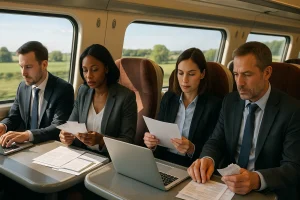
VAT plays a subtle yet important role in how you plan your business travel. Since most train fares are zero-rated, you won’t be able to reclaim VAT on them, but they remain fully deductible as business expenses under your income or corporation tax assessments.
However, any extras that do include VAT, such as sleeper services, onboard meals, or booking fees, can be reclaimed if you have a valid VAT invoice. This makes accurate documentation and receipt-keeping essential when planning business travel.
Understanding which parts of your journey are VAT-inclusive helps streamline accounting. It also ensures you’re making the most of allowable deductions and not mistakenly claiming VAT where none was charged.
For businesses with frequent travel, setting internal guidelines around travel bookings, preferred suppliers, and receipt collection can save time and avoid tax return mistakes.
What You Need to Know About VAT on Train Travel
If you’re managing travel expenses or just want clarity before booking your next trip, understanding how VAT applies to UK train travel is vital. This section provides a concise breakdown.
Bullet-style Summary of Key Points
- Most UK train tickets are zero-rated for VAT.
- Zero-rated means VAT is charged at 0 percent, not completely exempt.
- Extras like food, sleeper berths, and booking fees often include VAT.
- You can reclaim VAT only on the standard-rated parts of your journey.
- Businesses cannot reclaim VAT on zero-rated tickets, but should still record them.
Common Misunderstandings Debunked
Many people believe zero-rated and VAT-exempt are the same, but they’re not. Zero-rated services are taxable but charged at 0 percent, while exempt services are outside the VAT system altogether.
Another misconception is that all parts of a train journey are VAT-free. In reality, extras and third-party charges often include VAT.
Final Tips for Commuters and Business Owners
Always review receipts and invoices to identify what parts of your travel are VAT-rated. For business travellers, only claim VAT where there’s an applicable charge and a valid invoice.
For commuters, knowing what you’re paying for helps avoid confusion and makes budgeting clearer. Whether you’re travelling for work or leisure, being VAT-aware helps you stay financially informed and compliant.
VAT Breakdown for UK Train Travel Scenarios
Understanding which parts of your travel attract VAT and which don’t can help with budgeting and business expense claims. Here’s a simplified breakdown of common train travel situations.
| Ticket Type / Service | VAT Status | Reclaimable? |
| Standard-class ticket (domestic) | Zero-rated (0%) | No |
| First-class ticket (most cases) | Zero-rated (0%) | No |
| Booking fees from Trainline | Standard-rated | Yes (with VAT invoice) |
| Food and drink onboard | Standard-rated | Yes (with VAT invoice) |
| Sleeper cabin or premium services | Standard-rated | Yes (with VAT invoice) |
| Tourist attraction + travel package | Standard-rated | Yes (with VAT invoice) |
While this table covers the most typical cases, variations can occur. Always confirm VAT rates with your provider when in doubt. A clear breakdown makes travel planning and expense claims more efficient.
Conclusion
VAT on train tickets in the UK is less confusing than it seems once you understand the rules. The majority of train fares are zero-rated, meaning no VAT is added to your ticket cost, though VAT is technically applicable at a 0 percent rate.
However, not every service related to your train journey falls under this rule. Extras like food, premium seating, and third-party booking fees may be taxed at the standard rate.
Whether you’re a daily commuter or a business traveller, having clarity on what includes VAT and what doesn’t will help you manage your travel costs better.
Keep an eye on your receipts, track your expenses properly, and always request VAT invoices where needed. Understanding these details keeps your finances compliant and your budget under control.
FAQs
Do train tickets in the UK have VAT?
No, most UK train tickets are zero-rated, meaning they include VAT at a 0 percent rate, so no extra VAT is charged.
Can I claim VAT back on train fares?
You cannot claim VAT on zero-rated fares, but you can reclaim VAT on any extras like booking fees if you have a valid VAT invoice.
Is VAT included in Trainline booking fees?
Yes, Trainline and other third-party booking platforms typically charge VAT on their booking fees, which can be reclaimed by VAT-registered businesses.
Are sleeper cabins and onboard meals subject to VAT?
Yes, sleeper cabins and onboard meals are considered extras and are generally charged at the standard 20 percent VAT rate.
Are first-class tickets VAT-free?
Most first-class tickets are zero-rated, but if they include extras like meals or entertainment, those parts may include VAT.
Is there a difference between VAT exempt and zero-rated?
Yes, zero-rated means VAT applies at 0 percent and can be reclaimed by the provider, while exempt means VAT doesn’t apply at all.
Should businesses record zero-rated train tickets in VAT returns?
Yes, even though you can’t reclaim VAT, you should still record zero-rated travel as part of your VAT return for accurate accounting.
{
“@context”: “http://schema.org/”,
“@type”: “FAQPage”,
“mainEntity”: [
{
“@type”: “Question”,
“name”: “Do train tickets in the UK have VAT?”,
“acceptedAnswer”: {
“@type”: “Answer”,
“text”: “No, most UK train tickets are zero-rated, meaning they include VAT at a 0 percent rate, so no extra VAT is charged.”
}
},
{
“@type”: “Question”,
“name”: “Can I claim VAT back on train fares?”,
“acceptedAnswer”: {
“@type”: “Answer”,
“text”: “You cannot claim VAT on zero-rated fares, but you can reclaim VAT on any extras like booking fees if you have a valid VAT invoice.”
}
},
{
“@type”: “Question”,
“name”: “Is VAT included in Trainline booking fees?”,
“acceptedAnswer”: {
“@type”: “Answer”,
“text”: “Yes, Trainline and other third-party booking platforms typically charge VAT on their booking fees, which can be reclaimed by VAT-registered businesses.”
}
},
{
“@type”: “Question”,
“name”: “Are sleeper cabins and onboard meals subject to VAT?”,
“acceptedAnswer”: {
“@type”: “Answer”,
“text”: “Yes, sleeper cabins and onboard meals are considered extras and are generally charged at the standard 20 percent VAT rate.”
}
},
{
“@type”: “Question”,
“name”: “Are first-class tickets VAT-free?”,
“acceptedAnswer”: {
“@type”: “Answer”,
“text”: “Most first-class tickets are zero-rated, but if they include extras like meals or entertainment, those parts may include VAT.”
}
},
{
“@type”: “Question”,
“name”: “Is there a difference between VAT exempt and zero-rated?”,
“acceptedAnswer”: {
“@type”: “Answer”,
“text”: “Yes, zero-rated means VAT applies at 0 percent and can be reclaimed by the provider, while exempt means VAT doesn’t apply at all.”
}
},
{
“@type”: “Question”,
“name”: “Should businesses record zero-rated train tickets in VAT returns?”,
“acceptedAnswer”: {
“@type”: “Answer”,
“text”: “Yes, even though you can’t reclaim VAT, you should still record zero-rated travel as part of your VAT return for accurate accounting.”
}
}
]
}
